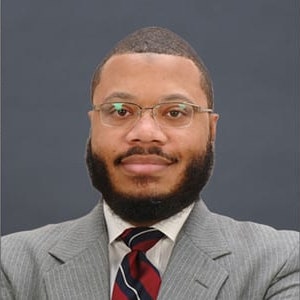Sometimes you can’t see the forest for the trees. How many times have we heard that adage? The world was introduced to the mythical country Wakanda in the original “Black Panther” movie, starring award winning actor and Howard University alum, Chadwick Boseman.
Hidden deep in the forest, this isolated Third World country was only known by its people; and behold, this isolated African nation is a technologically advanced wonder. Technology so superior, the people of Wakanda believed they needed to protect it from the rest of the world.
And now with the release of the “Black Panther: Wakanda Forever” movie the people of Wakanda have decided to share their advanced technology with people outside of their country. They are on the precipice of telling the world who they, why they matter, and why everyone else should pay attention to them.
That is precisely the moment historically Black colleges and universities (HBCUs) find themselves in today. Lodriguez Murray
Lodriguez Murray
There were the murders of George Floyd and Breona Taylor in 2020, the racial and social unrest that followed, and tragedies that befell so many others—but we still are inspired by their memories. People began looking beyond the trees and started viewing HBCUs in a different manner.
However, that’s not new to those of us who are HBCU alums and advocates for these exceptional institutions.
Even when others, even those in our community, approached HBCUs from a deficit narrative and thought only state flagships and Ivy Leagues had value in changing society, we held true to their value of wanting and specializing in educating the progeny of slaves no matter their economic situation.
Welcome home.
We’ve always approached them as institutions going from strength to strength, even if the areas where HBCUs are strong differ from other types of institutions.
That’s our belief and commitment at UNCF (United Negro College Fund) as we approach our 80th anniversary in 2024.
We’re not solely advocating for 101 institutions; we’re advocating a position that HBCUs should be prominent in the discussion about the future of all higher education in America.
Without question, HBCU fever, like Wakanda Forever fever, is rampant. Whether its Georgia gubernatorial candidate Stacy Abrams dancing the “Electric Slide” at the “Spel-House” homecoming, or actress Angelina Jolie hanging at out with her daughter at Spelman, or Coach Deion “Prime” Sanders leading his undefeated Jackson State University football team on to the battlefield to the hip hop song, “Here I Go,” by Mystical, HBCU homecomings are off-the-chain.
And for good reason.
While most colleges and universities are experiencing declining enrollment, online schools and HBCUs see increases, based on a recent report from the National Student Clearinghouse.
College enrollment dropped for the third consecutive school year after the start of the pandemic, dashing universities’ hopes that a post-Covid rebound was at hand.
HBCUs saw an enrollment uptick of more than 6% among freshmen.
And not surprising. No institutions of higher learning can do what HBCUs do for Black students: producing 80 percent of America’s Black judges, 50 percent of the country’s Black doctors, and 50 percent of its Black lawyers.
Again, welcome home.
While totaling only three percent of all colleges and universities, UNCF institutions and other historically Black colleges and universities are highly effective, awarding 15 percent of bachelor’s degrees, five percent of master’s degrees, 10 percent of doctoral degrees and 19 percent of all STEM degrees earned by Black students in higher education.
HBCUs have a 34 percent mobility rate of moving their students from the bottom 40 percent in household income into the top 60 percent. This is double the national average and five times more than Ivy institutions.
And yet, unlike the producers and corporate sponsors of “Black Panther: Wakanda Forever,” who get richer by the hour, HBCUs remain chronically underfunded.
In that spirit, I am making a call to action to HBCU alumni, fans and supporters to not only wear the HBCU hoodies, sweatshirts and tee-shirts, like they wear the Wakanda Forever and Black Panther paraphernalia but increase your spending with HBCUs with the same enthusiasm as you do Black Panther.
Enjoy the tailgate parties at homecoming, but don’t shortchange your alma mater in donations and charitable gifts.
These very real institutions need your support to improve infrastructure and innovate to offer the best possible learning experience for their students, and they need your support.
Another major way you can support HBCUs is to join UNCF (United Negro College Fund) in our advocacy efforts to get Congress to pass the HBCUs IGNITE Excellence Act, H.R. 8803. This bill is the most important single piece of legislation for HBCUs before this Congress, and it must be passed by both the House and Senate prior to adjournment.
The bill would require the U.S. Department of Education to disperse grants for constructing new campus buildings, expand broadband access, and acquire research and instruction equipment specifically at historically Black colleges and universities (HBCUs) and qualifying minority-serving institutions (MSIs), such as Hispanic-serving institutions (HSIs) and Asian American and Native American Pacific Islander-serving institutions.
The time is now for Democrats and Republicans to join us and pass this bill, just as they worked together to pass the FUTURE Act in 2019.
We need everyone who support HBCUs to go to our website UNCF.org/hbcuignite, and in less than 15 seconds write your members of Congress. This is the way we can make significant change on our campuses and improve our facilities. We must act now to ensure Congress acts now.
Wakanda Forever!!! HBCUs Forever!!!
And to those who are starting to understand our value. On behalf of all HBCU alums, welcome home. We belong to you, too.
Lodriguez Murray is senior vice president, Government Affairs and Public Policy, UNCF (United Negro College Fund)


















